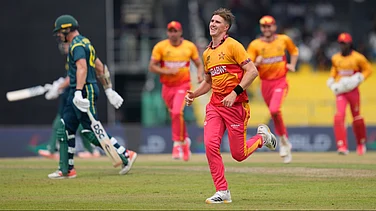FIFA and UEFA's attempts to block the European Super League, a self-governing competition consisting of several of the continent's biggest clubs, has received a significant blow following the latest European Court of Justice ruling. As per the ECJ, neither FIFA nor UEFA have the right to block the formation of any such competition, nor impose a ban on players choosing to play in the same, two key threats that football's organising bodies had levied on the competition. (Football News)
"The Fifa and Uefa rules on prior approval of interclub football competitions, such as the Super League, are contrary to EU law. They are contrary to competition law and the freedom to provide services," said the ECJ ruling.
The ruling recognised FIFA and UEFA as the dominant market forces when it comes to football and, in turn, must ensure that they are "transparent, objective, non-discriminatory and proportionate".
The ruling went on to state the otherwise: "However, the powers of Fifa and Uefa are not subject to any such criteria. Fifa and Uefa are, therefore, abusing a dominant position.
"Moreover, given their arbitrary nature, their rules on approval, control and sanctions must be held to be unjustified restrictions on the freedom to provide services.
"That does not mean that a competition such as the Super League project must necessarily be approved. The Court does not rule on that specific project in its judgment."
The creators of the European Super League, a company called A22, celebrated the ECJ decision, claiming that football is "free"
"We have won the right to compete. The UEFA-monopoly is over. Football is FREE. Clubs are now free from the threat of sanction AND free to determine their own futures”, our CEO Bernd Reichart comments the CJEU decision," they tweeted.
Conversely, La Liga, which houses two of the European Super League's most prominent backers, Real Madrid and FC Barcelona, rebuffed the decision, calling the model "elitist".
"Today, more than ever, we reiterate that the “Super League” is a selfish and elitist model. Anything that is not fully open, with direct access only through the domestic leagues, season by season, is a closed format," tweeted La Liga.


























